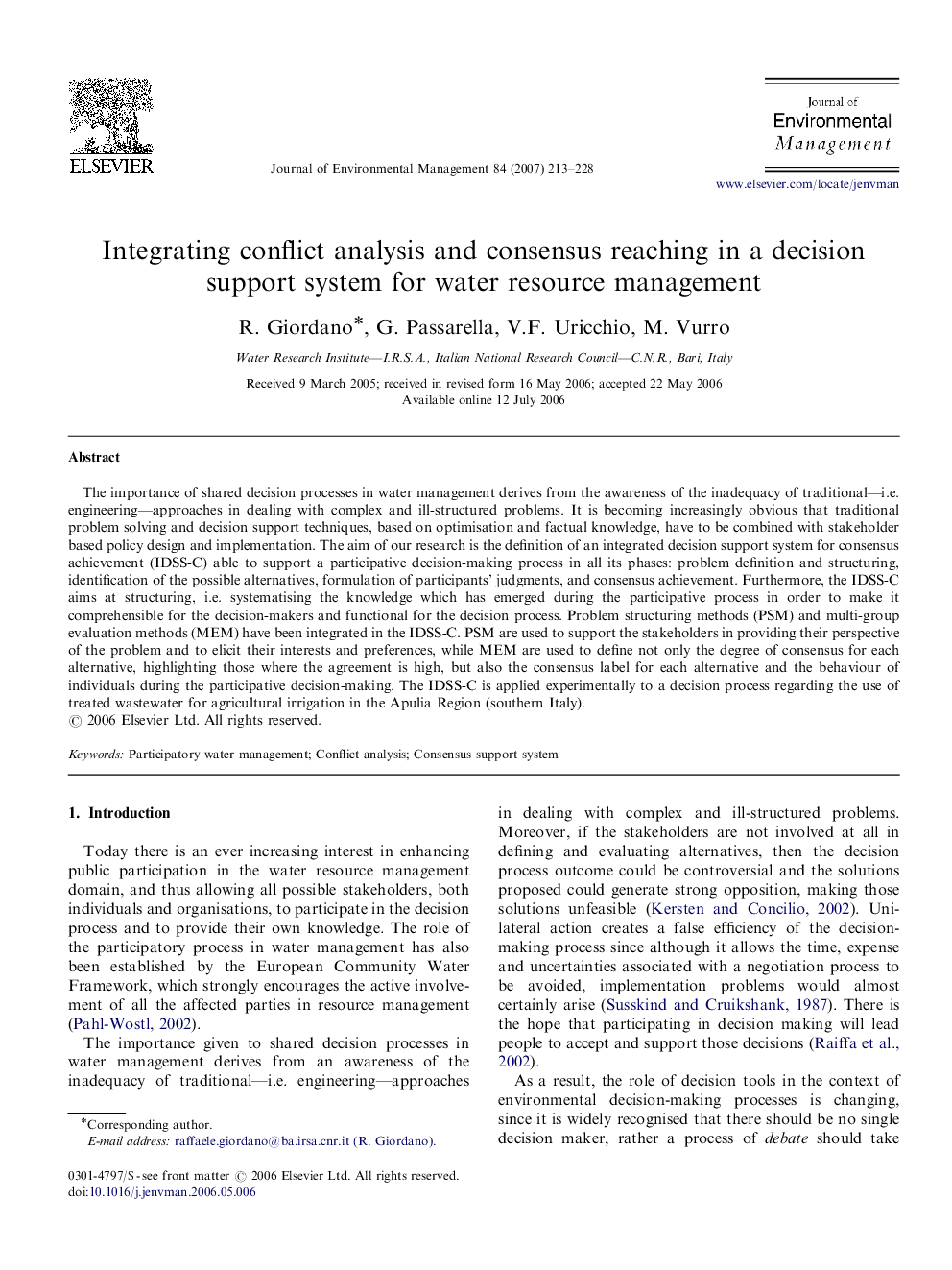| Article ID | Journal | Published Year | Pages | File Type |
|---|---|---|---|---|
| 1058838 | Journal of Environmental Management | 2007 | 16 Pages |
The importance of shared decision processes in water management derives from the awareness of the inadequacy of traditional—i.e. engineering—approaches in dealing with complex and ill-structured problems. It is becoming increasingly obvious that traditional problem solving and decision support techniques, based on optimisation and factual knowledge, have to be combined with stakeholder based policy design and implementation. The aim of our research is the definition of an integrated decision support system for consensus achievement (IDSS-C) able to support a participative decision-making process in all its phases: problem definition and structuring, identification of the possible alternatives, formulation of participants’ judgments, and consensus achievement. Furthermore, the IDSS-C aims at structuring, i.e. systematising the knowledge which has emerged during the participative process in order to make it comprehensible for the decision-makers and functional for the decision process. Problem structuring methods (PSM) and multi-group evaluation methods (MEM) have been integrated in the IDSS-C. PSM are used to support the stakeholders in providing their perspective of the problem and to elicit their interests and preferences, while MEM are used to define not only the degree of consensus for each alternative, highlighting those where the agreement is high, but also the consensus label for each alternative and the behaviour of individuals during the participative decision-making. The IDSS-C is applied experimentally to a decision process regarding the use of treated wastewater for agricultural irrigation in the Apulia Region (southern Italy).
